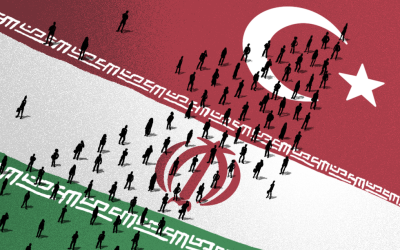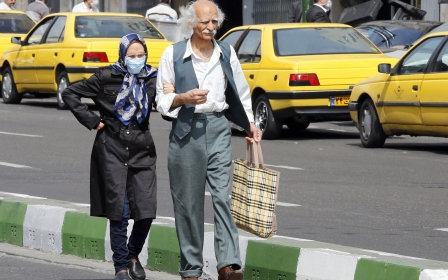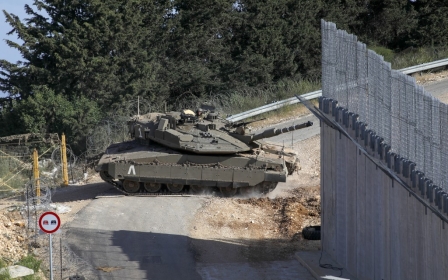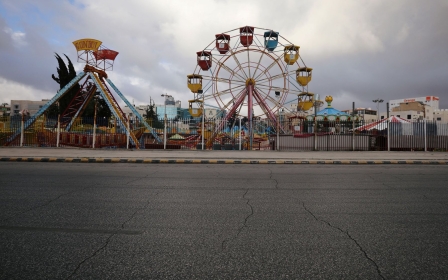Iranian press review: Iran changes tactics in Syria to counter Israel
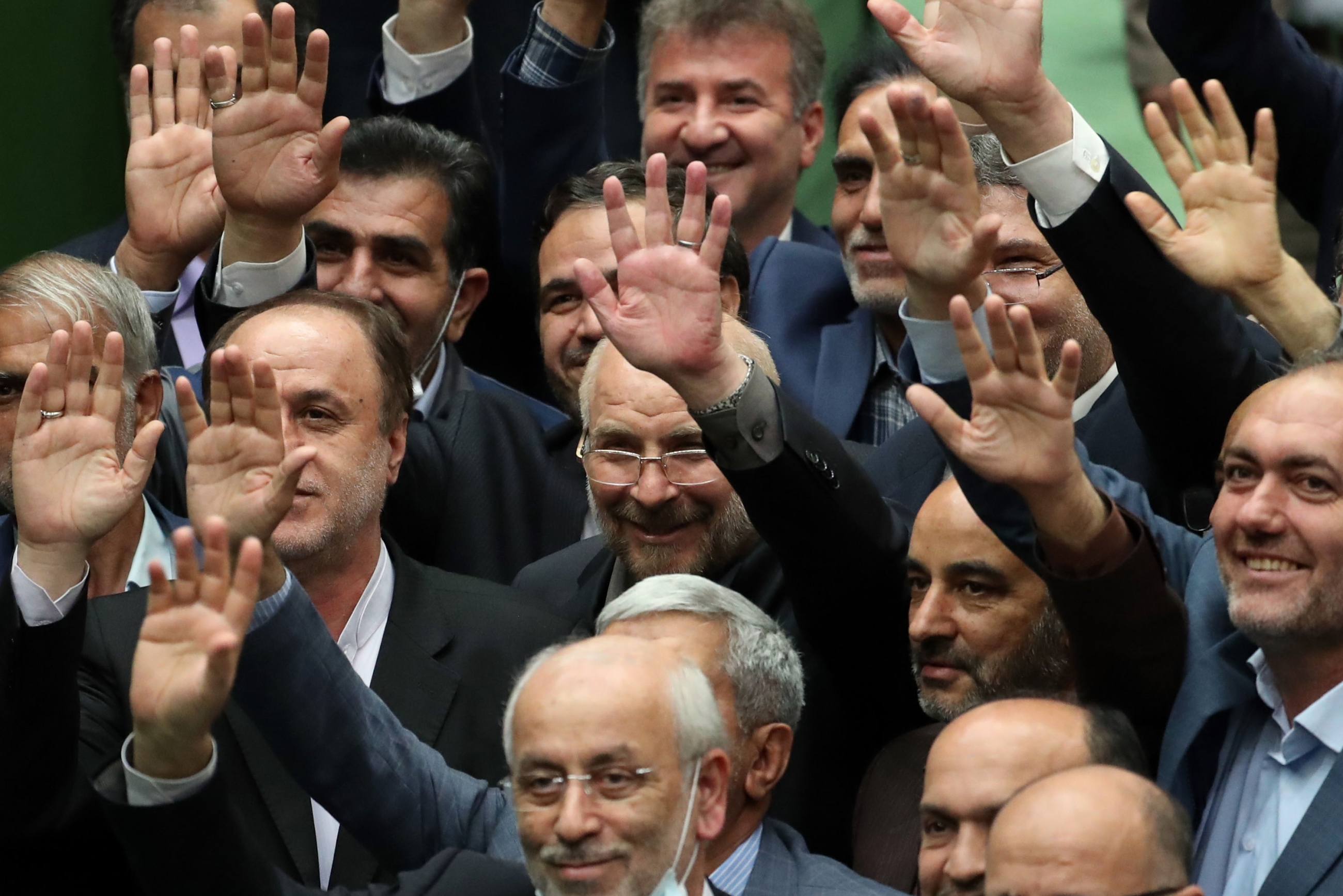
Iran's new tactics in Syria
In an interview with the Ebtekar daily, Iranian analyst Mostafa Najafi revealed that Iran is using new tactics in Syria and Iraq to further its long-term interests in the region, in response to recent military attacks by Israel.
Najafi is close to officials in the Expediency Discernment Council of the System (EDCS) - an advisory body for the supreme leader and the Islamic Revolutionary Guard Corps (IRGC). He rejected Israeli claims that Iranian military forces were pulling back from Syria.
'In times of crisis, Iran has shown that it is prone to change tactics, instead of strategies'
- Mostafa Najafi, analyist
“In times of crisis, Iran has shown that it is prone to change tactics, instead of strategies,” Najafi told Ebtekar.
“Iran changes its tactics to avoid retreating from its strategies. This is an inseparable part of Iran’s strategy in the region,” he added.
New MEE newsletter: Jerusalem Dispatch
Sign up to get the latest insights and analysis on Israel-Palestine, alongside Turkey Unpacked and other MEE newsletters
In mid-May, Israeli and American sources claimed that Iran had retreated from Syria, due to US pressure and Israeli Air Force attacks on Iranian-controlled troops in Syria.
In recent months, Israel has intensified aerial attacks targeting military bases inside Syria where IRGC troops, Lebanese Shia militant group Hezbollah and Syrian militants backed by Iran are stationed.
Najafi did not elaborate further on Iran’s new tactics in Syria, however he revealed that previously when Iran changed tactics, 53,000 Iranian-backed fighters switched their uniforms and merged into the Syrian army.
Another tactical change was seen when the US blocked Iran’s north-south logistic corridor inside Syria. According to Najafi, Iran’s push to open Al-Qaim crossing last October was a tactical move to establish its east-west logistic corridor in response to US military pressures in northern Syria.
Since the beginning of the Syrian civil war more than nine years ago, the IRGC along with the Lebanese Hezbollah forces have been fighting in support of the Syrian army of President Bashar al-Assad.
Aggressive stance
Iran’s new parliament speaker, Mohammad Bagher Ghalibaf, announced in his first speech that his government will focus on responding proportionally to US threats and attacks instead of negotiating with Washington.
“The eleventh parliament believes that negotiating and compromising with the US, which is the main pillar of global arrogance, is fruitless and full of harm,” Ghalibaf was quoted by ICANA news agency as saying.
Ghalibaf, who was elected Iran’s new speaker of parliament with a strong majority in February, is a former IRGC commander.
At the start of the Iran-Iraq war in the 1980s, he joined the IRGC at the age of 19.
Ghalibaf also emphasised that the new parliament’s foreign policy would be based on supporting “the axis of resistance” and seeking justice for the assassination of IRGC Quds Force Commander Major General Qassem Soleimani.
'Our strategy in response to terrorist America is to continue the chain of avenging the blood of martyr Soleimani'
- Mohammad Bagher Ghalibaf
“Our strategy in response to terrorist America is to continue the chain of avenging the blood of martyr Soleimani,” he said.
“This path has started with the [IRGC] attack on Ain al-Asad base, to which the US could not give any response, and will be completed with a total expulsion of the terrorist American army from the region,” Ghalibaf said.
In January, Soleimani was assassinated in a US drone attack in Baghdad, and in retaliation the IRGC conducted a missile attack on the American Ain al-Assad military base in Iraq.
Days after the attack, the US military announced that over 100 American troops had symptoms of minor brain injury in the attack.
Ghalibaf also pledged his allegiance to Soleimani on Twitter on the same day he was elected speaker.
Iranians buying property in Turkey
Wealthy Iranians, worried about further devaluation of the Iranian rial against foreign currencies, have turned to buying property in Turkey, the Aftab daily has reported.
In April, while Turkey was under lockdown to contain the coronavirus pandemic, Iranians topped the Turkish property market by buying 157 properties.
By comparison, Iraqis had purchased 103 properties in Turkey, Russians 61 properties, Afghans 54 and Chinese 40.
Since the 1979 revolution, Turkey has been an attractive destination for Iranians.
Many go on short vacations to their neighbouring country, where the consumption of alcohol is permitted and social restrictions are relaxed.
Wealthy Iranians see an opportunity in Turkey to invest their capital and protect it from a constant devaluation incurred each time US sanctions are slapped on Iran.
Additionally, by owning property in Turkey, Iranians are eligible to apply for Turkish citizenship, which would open up visa-free travel to several countries and make it easier to apply for visas when needed.
Officially, Iranians can apply for tourist visas across the world. In reality, however, it is almost impossible for ordinary Iranians to obtain a tourist visa to most countries.
This situation has worsened since a 2015 law signed by former US president Barack Obama that President Donald Trump turned into an executive order in 2017, denying entry to individuals from Iran and several other countries, colloquially known as the "Muslim ban".
Based on statistics published by Arman daily paper, in 2017 Iranians bought 792 properties in Turkey. This number increased to 3,652 in 2018 and 5,423 in 2019.
*The Iranian press review is a digest of reports that are not independently verified as accurate by Middle East Eye.
Middle East Eye delivers independent and unrivalled coverage and analysis of the Middle East, North Africa and beyond. To learn more about republishing this content and the associated fees, please fill out this form. More about MEE can be found here.


